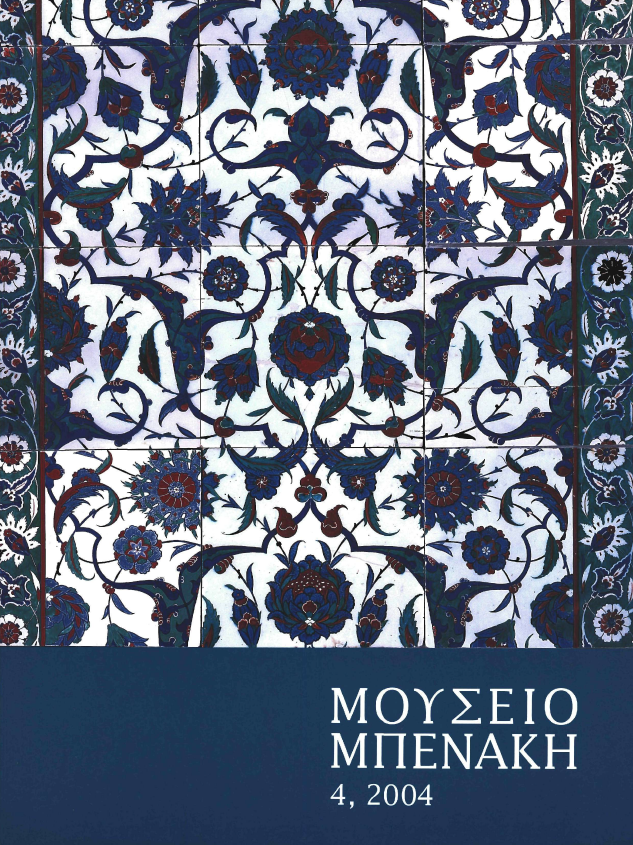"Paper and ink make for a good bridegroom . Matrimonial contracts in the Historical Arcives of the Benaki Museum
Abstract
Matrimonial contracts (proikosymphona) are a form of document of particular interest to the scholar because of their direct link with the institutions of marriage and of the dowry. They are notarial deeds which provide formal recognition of dowries and uphold their validity in any legal dispute. The present study, based on the contracts preserved in the Benaki Museum's Historical Archives, aims to investigate the relevant customs and to shed light on certain aspects of Greek society. The oldest document in the archives is a matrimonial contract from Skopelos dated 7 July 1766. The dowry system had created a significant social problem for the island as parents were obliged to provide their first-born daughter with a house as dowry. Later agreements derive from other parts of the country and take the form either of a notarial deed or of a private contract. The total value of the dowry was calculated after assessing the moveable and immoveable property recorded in the matrimonial contract or the dowry list (proikolavi). The priokosymphono was followed by the proikolavi, which in fact constituted the detailed inventory of the moveable items of the dowry. This has a special interest for the student of folklore, as it describes the garments which constituted traditional costume, the domestic linen and the household furnishings. We know from folklore and archival records of another institution linked with the dowry, that of the premarital gift (progamiaia dorea) — the so-called 'counterdowr' (antiproiki) or 'basket' (kaniski). The pre-marital gift is attributed to Byzantine legislation and takes the form of a gift from the bridegroom to the bride and not to her family. The year 1919 marked a turning-point in the development of the dowry system, as it was then that the law relating to the taxation of dowries was enacted. The reform of family law in 1983 abolished the legislation relating to dowry arrangements and the institution ceased to have legal effect, but it still continues to this day on an informal basis.
Article Details
- How to Cite
-
Δημητριάδου Μ. (2018). "Paper and ink make for a good bridegroom . Matrimonial contracts in the Historical Arcives of the Benaki Museum. Mouseio Benaki Journal, 4, 91–98. https://doi.org/10.12681/benaki.18255
- Issue
- Vol. 4 (2004)
- Section
- Articles

This work is licensed under a Creative Commons Attribution-NonCommercial-ShareAlike 4.0 International License.
The copyright for articles published in Mouseio Benaki is retained by the author(s), with first publication rights granted to the journal. By virtue of their appearance in this open access journal, articles may be used freely for non-commercial uses, with the exception of the non-granted right to make derivative works, with proper reference to the author(s) and its first publication. The Benaki Museum retains the right to publish, reproduce, publicly display, distribute, and use articles published in Mouseio Benaki in any and all formats and media, either separately or as part of collective works, worldwide and for the full term of copyright. This includes, but is not limited to, the right to publish articles in an issue of Mouseio Benaki, copy and distribute individual reprints of the articles, authorize reproduction of articles in their entirety in another publication of the Benaki Museum, as well as authorize reproduction and distribution of articles or abstracts thereof by means of computerized retrieval systems.


